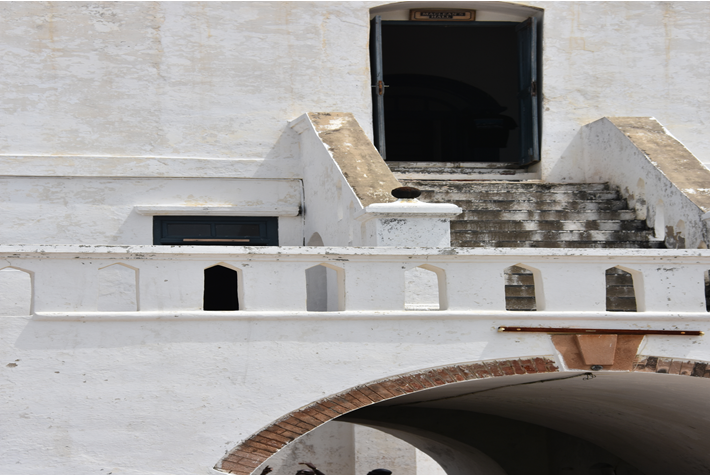The Working Group on Slavery and Visual Culture
presents
The Spaces of Enslavement:
Rethinking the Architecture of the Castle/Dungeon
a public lecture by
Simon Gikandi
of Princeton University
Thursday, October 27th at 5:30pm at the Franke Institute for the Humanities Conference Room (1100 E. 57th Street)
Persons with a disability who believe they need assistance are invited to contact lordfransee@uchicago.edu
ABSTRACT: If one visits the slave castles that line the coast of West Africa looking for evidence of the cargos they once held in dungeons deeply buried in the underground, or seeking testimony for the masses of African bodies that were once held there before being shipped to the Americas, one is bound to be disappointed. For far from functioning as sites of memory, or as Pierre Nora would say, “the instruments by means of which memories are perpetuated,” the castles seem to negate all attempts to read them as allegories of a dark history. These edifices seem to function, not as places of death and destruction, but as the quintessential autonomous aesthetic object. Confronted by buildings that seem to be beautiful, in spite of their dark histories, scholars of the castles have tended to explain their attractiveness in terms of contested memories and competing histories and desires. But my argument is that the castles resist a commemorative function because of their bifurcated architecture: At the top, the visible castle is a replica of European domestic spaces at the dawn of modernity; at the bottom, underground, are “medieval” dungeons where the repressed bodies that enable the civilizing process are kept out of sight. How can we read the top and the below as part of the same scheme when they are spatially separated?
Simon Gikandi is Robert Schirmer Professor of English at Princeton University and editor of PMLA, the official journal of the Modern Languages Association (MLA). He was born in Kenya and graduated with a B.A [First Class Honors] in Literature from the University of Nairobi. He was a British Council Scholar at the University of Edinburgh in Scotland from which he graduated with a M.Litt. in English Studies. He has a Ph.D in English from Northwestern University. His major Fields of Research and Teaching are the Anglophone Literatures and Cultures of Africa, India, the Caribbean, and Postcolonial Britain, the “Black” Atlantic and the African Diaspora. He is also interested in the encounter between European and African languages in the modern period, literature and human rights, and writing and cultural politics. He is the author of many books and articles including Writing in Limbo: Modernism and Caribbean Literature, Maps of Englishness: Writing Identity in the Culture of Colonialism, and Ngugi wa Thiong’o, which was a Choice Outstanding Academic Publication for 2004, and co-author of The Columbia Guide to East African Literature in English Since 1945. He is the co-editor of The Cambridge History of African and Caribbean Literature and the editor of the Routledge Encyclopedia of African Literature. His book, Slavery and the Culture of Taste (Princeton University Press, 2011) has won many major awards, including the Melbern Glasscock Center for Humanities Research, Texas A&M University; the Melville Herskovits Award for the most important scholarly work in African studies; and the James Russell Lowell Prize for an outstanding scholarly work by a member of the Modern Languages Association. He is currently working on This Thing Called English: The Colonized and their Books, the Novel from Below, and The Atlantic Crypt: the African in the Archive of Slavery.
